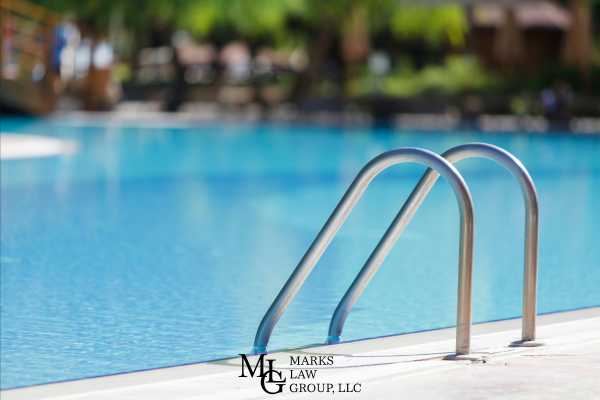In conclusion, proving negligence in drowning cases in Georgia requires a thorough understanding of legal principles and a meticulous approach to gathering evidence. Establishing duty of care, breach of duty, causation, and damages are essential steps to securing the compensation you deserve. If you or a loved one has been affected by a drowning incident, it is crucial to seek experienced legal representation to navigate this complex process.
Contact our skilled injury lawyers in Decatur today for a free consultation. We are committed to helping you prove negligence and achieve the justice and compensation you deserve. Don't wait—reach out now at 678-251-9309 to discuss your case and take the first step toward recovery.
Understanding Negligence in Drowning Cases
In Georgia, proving negligence in drowning cases involves demonstrating that a party's lack of reasonable care directly led to the incident. The legal process requires establishing several key elements to build a strong case for negligence.
First, you must show that the defendant owed a duty of care to the victim. In the context of drowning cases, this duty might be owed by property owners, pool operators, lifeguards, or anyone responsible for maintaining a safe environment around water. For instance, property owners are generally expected to ensure their premises are safe for visitors, which includes maintaining secure swimming areas and proper supervision.
Second, it must be proven that the defendant breached this duty of care. This breach can occur through actions such as failing to provide adequate supervision, not maintaining safety equipment, neglecting to post warning signs, or allowing hazardous conditions to exist. For example, if a pool owner does not have proper fencing around the pool, allowing unsupervised access, this could be considered a breach of duty.
Third, there must be a direct causal link between the breach of duty and the drowning incident. This means demonstrating that the defendant's actions (or lack thereof) directly caused the accident. For instance, if a lifeguard was distracted and failed to notice a swimmer in distress, leading to a drowning, the lifeguard's inattention would be the direct cause of the incident.

Finally, you must show that the victim suffered damages as a result of the drowning. Damages can include medical expenses, funeral costs, pain and suffering, and loss of future income. In wrongful death cases, the family of the deceased may seek compensation for their loss.
Understanding how negligence works in these cases is crucial for holding responsible parties accountable and securing compensation for drowning victims and their families. If you or a loved one has been affected by such an incident, consulting with a knowledgeable attorney can help navigate the complexities of the legal process and build a strong case.
If you need assistance with a drowning case, our experienced attorneys are here to help. Contact us today for a consultation to discuss your options and ensure your rights are protected.
Property Owner Negligence That Can Contribute to Drowning Accidents
Property owner negligence can significantly contribute to drowning accidents, particularly in settings such as residential pools, public swimming facilities, hotels, and other recreational areas. Various forms of negligence by property owners can create hazardous conditions that increase the risk of drowning.
Lack of Proper Supervision
Property owners must ensure that lifeguards or responsible adults are present to supervise swimming areas, especially where children are involved. Failure to provide adequate supervision can lead to accidents as swimmers may be left unattended and unable to receive timely assistance in an emergency.
Inadequate Safety Measures
Property owners are responsible for implementing and maintaining safety features such as fences, pool covers, and alarms. Pools without proper barriers can be easily accessed by unsupervised children or individuals, leading to potential drowning incidents.
Failure to Maintain Equipment
Negligence in maintaining the safety equipment can result in dangerous situations. This includes ensuring that pool drains, ladders, diving boards, and filtration systems are functioning correctly. Malfunctioning equipment can pose serious risks to swimmers.
Learn More: Can Apartments Be Found Liable for Drowning Cases?
Poor Signage and Warnings
Property owners must post clear and visible signs indicating potential hazards, such as deep water, slippery surfaces, or areas with strong currents. Without adequate signage, individuals may unknowingly enter dangerous areas, increasing the risk of drowning.
Inadequate Lighting
Proper lighting around pools and swimming areas is essential, especially for nighttime use. Poor or insufficient lighting can make it difficult for swimmers to see potential hazards or for others to spot someone in distress.
Failure to Respond to Known Hazards
Property owners should promptly address any known hazards or defects in swimming areas. This includes repairing broken fences, fixing malfunctioning equipment, and addressing any environmental dangers like slippery surfaces or algae growth that can lead to accidents.
Lack of Life-Saving Equipment
Property owners must ensure that appropriate life-saving equipment, such as life rings, reaching poles, and first aid kits, are readily available and in good condition. The absence of such equipment can delay rescue efforts in an emergency.
Allowing Dangerous Behaviors
Property owners should enforce rules that prevent dangerous behaviors such as diving in shallow water, running around the pool, or excessive horseplay. Failure to regulate these activities can lead to accidents and potential drownings.
Property owner negligence can have severe consequences, leading to tragic drowning incidents. If you or a loved one has been affected by such negligence, it is crucial to seek legal advice to understand your rights and options for pursuing compensation.
Common Challenges in Proving Negligence in Drowning Accidents in Georgia
Proving negligence in drowning accidents in Georgia can be challenging due to several factors. Establishing that a property owner or other party is responsible for the accident involves demonstrating that they failed to exercise reasonable care, directly leading to the drowning. Here are some common challenges faced in such cases:

- Establishing Duty of Care: The first step in proving negligence is to establish that the defendant owed a duty of care to the victim. This can be particularly challenging if the drowning occurred in an area where the duty of care is not explicitly defined, such as natural bodies of water or private pools without clear access restrictions.
- Demonstrating Breach of Duty: Once a duty of care is established, it must be shown that the defendant breached this duty. This involves proving that the property owner or responsible party failed to act as a reasonable person would under similar circumstances. Gathering evidence of inadequate safety measures, lack of supervision, or failure to maintain equipment can be difficult, especially if there are no witnesses or surveillance footage.
- Proving Causation: Causation is a critical element in negligence cases. It must be demonstrated that the breach of duty directly caused the drowning. This can be complicated by factors such as the victim’s own actions, pre-existing medical conditions, or unforeseeable events. Expert testimony may be required to establish a clear link between the negligence and the drowning.
- Overcoming Contributory Negligence: Georgia follows a modified comparative negligence rule, meaning that if the victim is found to be partially at fault for the accident, their compensation can be reduced proportionally. If the victim is found to be 50% or more at fault, they may be barred from recovering damages altogether. Defendants may argue that the victim's own negligence contributed to the drowning, complicating the case.
- Gathering Sufficient Evidence: Collecting evidence to support a negligence claim can be challenging. This may involve obtaining witness statements, expert testimony, maintenance records, safety protocols, and any available video footage. In some cases, crucial evidence may be lost or destroyed, making it harder to build a strong case.
- Dealing with Insurance Companies: Insurance companies representing the defendant may attempt to minimize their liability or deny the claim altogether. They may use various tactics to discredit the victim's case, making it essential for plaintiffs to have skilled legal representation to counter these strategies and negotiate a fair settlement.
- Navigating Legal Complexities: Drowning cases can involve complex legal issues, including premises liability, wrongful death statutes, and various local and state regulations. Navigating these complexities requires an in-depth understanding of the law and experience in handling similar cases.
Proving negligence in drowning accidents in Georgia demands a thorough investigation, compelling evidence, and legal advocacy. If you or a loved one has been affected by such an incident, it is crucial to seek legal advice to ensure your rights are protected.
Schedule a Free Consultation With Marks Law Group
Drowning incidents are tragic events that often leave families devastated and searching for answers. In Georgia, proving negligence in such cases can be a complex process, involving a detailed examination of the circumstances leading to the accident. Whether it occurred at a private pool, a public swimming area, or any other body of water, determining who is legally responsible is critical for seeking justice and compensation. Understanding the legal framework and knowing what evidence to gather can make a significant difference in the outcome of your case.
If you or a loved one has been affected by a drowning incident, it is crucial to seek experienced legal representation. Our dedicated team of premises liability attorneys knows how to prove negligence in drowning cases in Georgia. We are here to guide you through every step of the legal process, ensuring that those responsible are held accountable. Contact us today for a free consultation to discuss your case and learn how we can help you achieve the justice and compensation you deserve.
